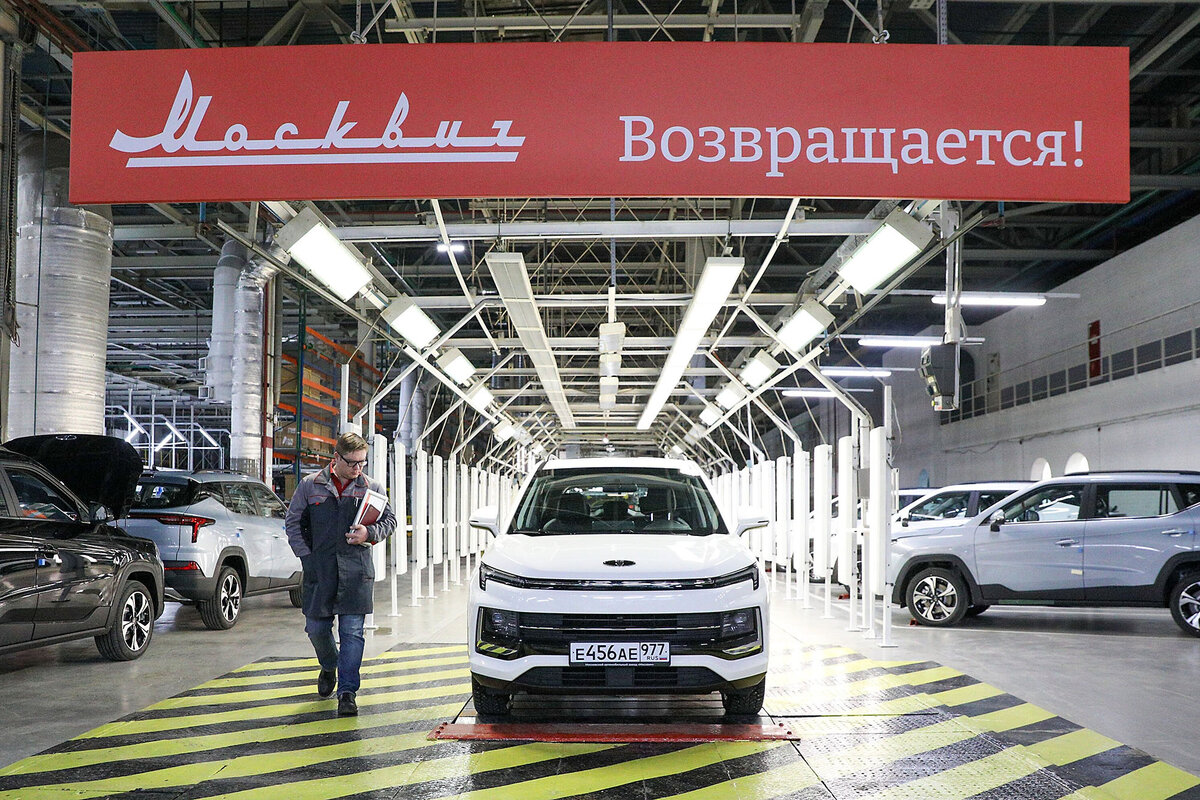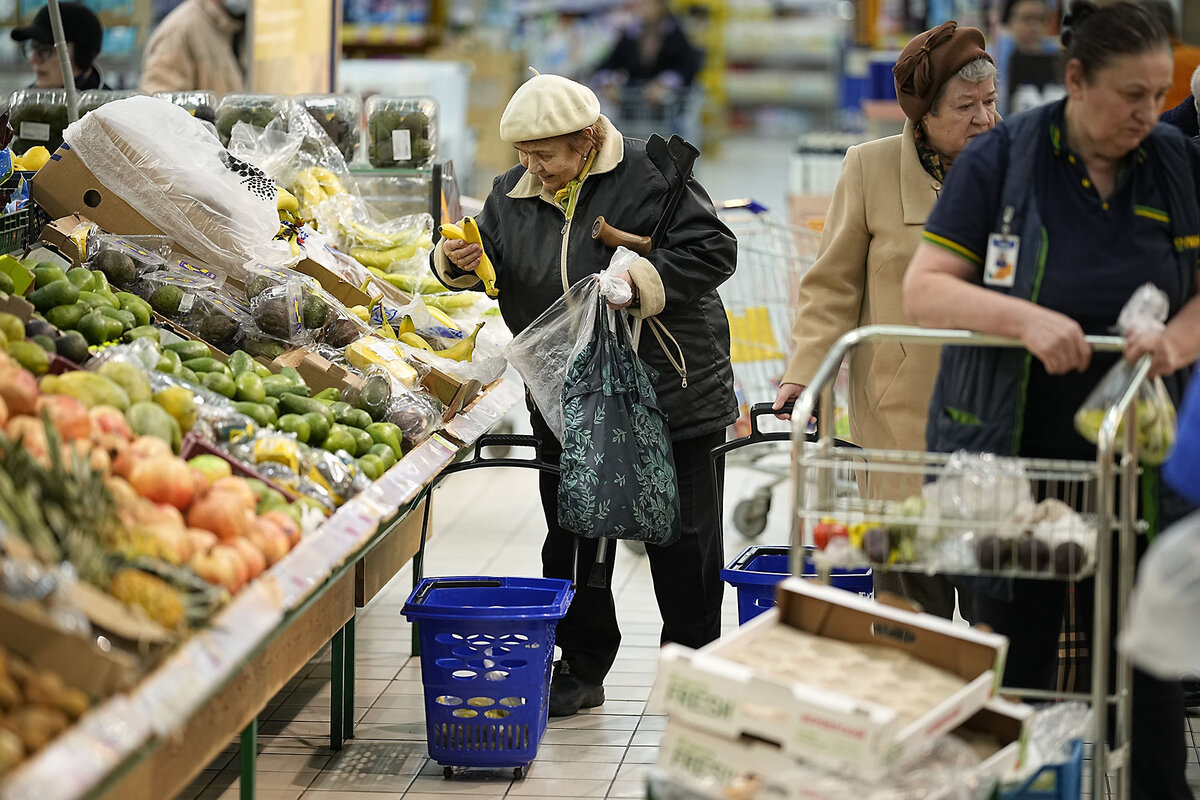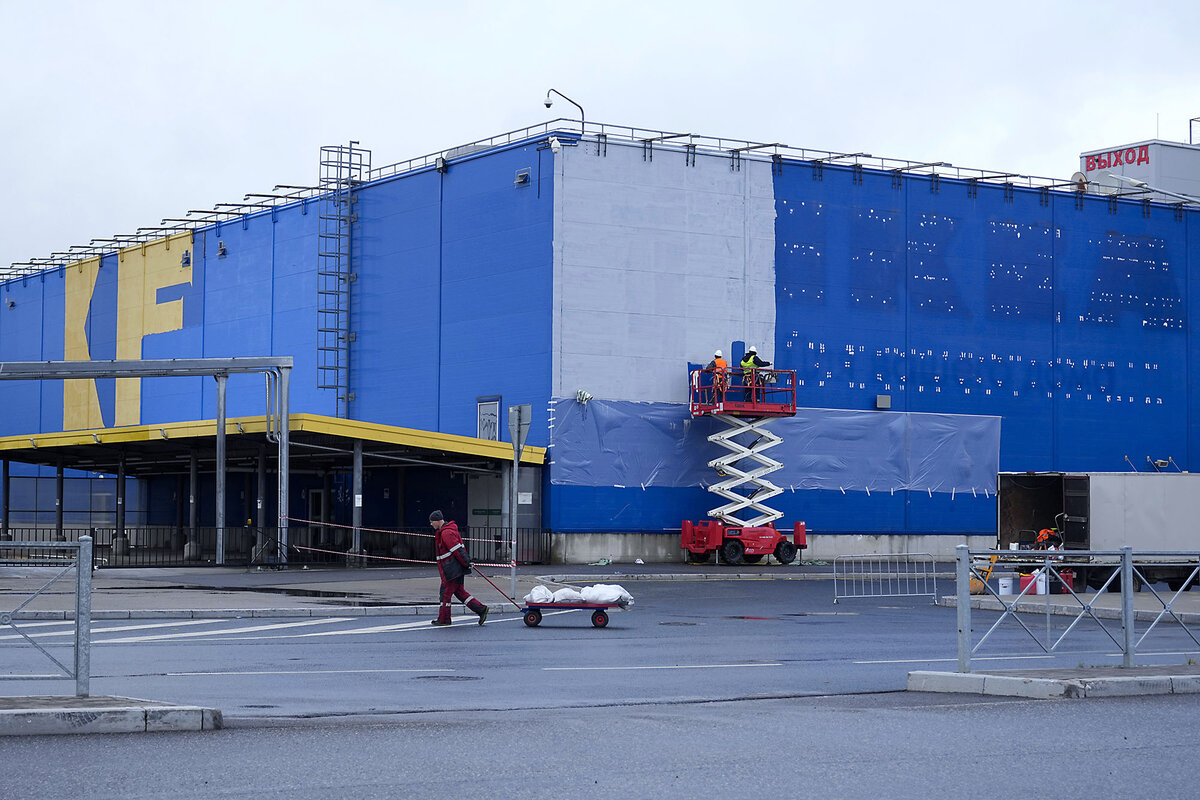If US ends sanctions on Russia, will Russia welcome back US businesses?
Loading...
| Moscow
The prospect of peace in Ukraine remains elusive. But its mere possibility, raised by the talks between Washington and Moscow and the prospect of Ukraine-Russia talks in Istanbul Thursday, has triggered a sharp debate in Russian business and political circles about the future of sanctions. In particular, a debate over the amount of relief that the war’s end might be expected to bring to Russia – and how much is even desirable.
Some in the West may presume that Russia is gasping for relief from the unprecedented barrage of sanctions – some 28,000 separate punitive measures according to Russian officials – that’s been leveled against the country since it annexed Crimea in 2014, and then invaded Ukraine in 2022.
But three years of Western sanctions aimed at diminishing Russia’s ability to prosecute the war has clearly not achieved the intended result. Instead, Russia’s economy has shapeshifted, replacing Western goods with often inferior or more expensive Russian-made ones, rerouting supply chains to friendly countries, and acquiring irreplaceable products through circuitous import channels.
Why We Wrote This
It’s unsurprising that Russians are thinking the warming relations between Washington and Moscow might mean an end to the United States’ sanctions. What may be surprising is that for some Russians, that’s not an entirely welcome prospect.
Vast amounts of state spending have reoriented Russian industrial priorities, and new economic constituencies have emerged that now rely on these new cash flows. In a recent interview with the Moscow business daily Kommersant, Russian Foreign Minister Sergey Lavrov suggested that Russia might not even seek sweeping sanctions relief amid the ongoing peace talks. That’s because, he said, any return to previous trade dependency with the West would undermine Russia’s hard-won economic self-sufficiency.
“We have a very powerful group in our public opinion, including opinion leaders, who believe that the lifting of sanctions will be disastrous,” he said. Tough rules will have to be imposed in order “to ensure security in those areas on which development in the state really depends, such as military security, food security, technological independence.”
“The market has changed”
Analysts say that some sectors of the Russian economy have been hard-hit by sanctions, especially high-tech engineering industries like aviation and energy. But others have benefited immensely from the exodus of who previously held big shares of the domestic market.
Industries that have gained from the largely inadvertent protectionist effect of sanctions include agriculture, light manufacturing, and consumer services such as fast food. At least potentially, they comprise a formidable lobby that could oppose any wholesale return of foreign firms to Russia’s market.
“Newly established Russian companies will be very reluctant to see those Western competitors just walk back in,” says Oleg Buklemishev, an economist with Moscow State University. “There are Russian business associations that have considerable political clout, and they will be lobbying” for tough rules that would block, or at least limit, companies’ ability to regain their former economic niches.
“The market has changed,” Dr. Buklemishev says. “While it’s way too soon to speak of any mass return of foreign companies to Russia, there are a few who would be quite eager to come back. Russia can be a very profitable market for some.”
Some major Western interests, such as European and Japanese automobile industries, will find their former positions now occupied by Chinese automakers. Others, including many consumer services and light industries, are now dominated by Russian businesses who were able to purchase the assets of departing Western firms on the cheap and move unopposed into their former market niches.
Though no clear policy has yet been set, it’s most likely that any requests from Western firms to return to Russia will be handled on a case-by-case basis, says Alexei Vedev, former deputy minister of economic development. One criteria will be how badly the Russian economy needs them, he says.
“There are firms like Boeing, whose parts and expertise are critical for the Russian aircraft and airlines industry, who would have good chances. So do many other big global engineering firms.” But there are other sectors where the interests of Russian business may be given priority, he says.
But the manner of their leaving will probably also be taken into account.
“Some Western firms left Russia quietly, citing technical or legal reasons, and it probably won’t be held against them,” says Ivan Timofeev, director of the Russian International Affairs Council, a semi-official think tank that consults with government and business. “But others went amid loud political pronouncements, and that will probably affect their chances of coming back.”
Do Russians want sanctions to end?
Many departing firms included buyback clauses in their exit agreements, to enable reentry in case geopolitical conditions changed. And despite pulling out, at least 25 big foreign companies, including McDonald’s, Mercedes, and Ikea, have made efforts in Russia.
Some analysts caution that no significant sanctions relief is likely, even if peace should break out in Ukraine. Mr. Timofeev says there’s little reason for optimism. History shows that sanctions can be quickly imposed, but it often takes decades to remove them. And any changes that one U.S. administration makes might easily be reversed by the next, he says.
“There might be some easy steps, like normalizing diplomacy, restoring airline links, maybe remove a few individuals from sanctions lists,” he says. “But it’s likely we will be dealing with these sanctions for a long time to come.”
It’s not clear whether it even matters to Russian consumers. A poll found that just 12% of Russians felt that sanctions had “seriously” impacted their lives. A further 25% said the effect of sanctions on their lives was “mild,” while 57% said they had experienced no changes whatsoever.
Barely a fifth of respondents said they expected any lifting of sanctions in the next couple of years, but 53% believed that any sanctions relief would be positive for Russia’s economy; 13% thought it would be harmful.
Still, some entrepreneurs insist that they learned a lot from Western firms that operated in Russia in the past, and say their current absence is abnormal. Ksenia Knyazeva, a Russian clothing designer who has seen her business grow markedly since most of her foreign competitors departed, says she’d be happy to see them come back.
“There were some very popular brands, like H&M or Zara, and when they left it caused traffic in the shopping centers to decrease. That’s just a fact,” she says. In other words, the overall pie was shrinking, even if Russian retailers like herself got more of it.
“Some of these brands were a magnet for consumers, and I believe their return would bring more people back into the shopping malls. The renewed competition would stimulate interest and be good for everyone,” she says. “I’m confident that my piece of the pie will be enough.”








